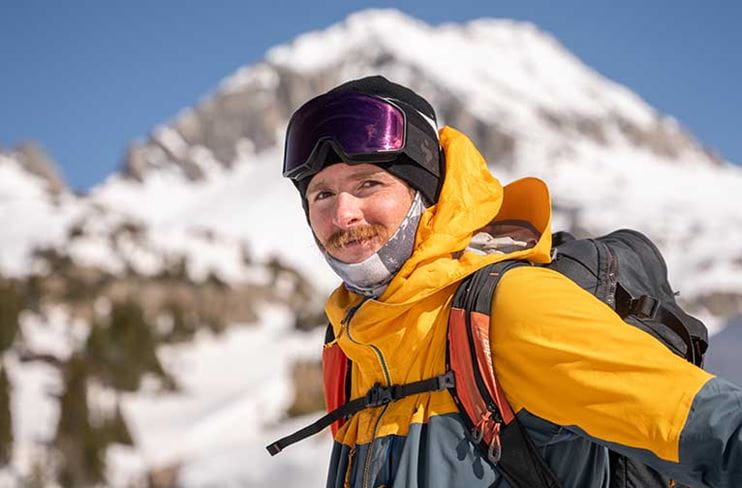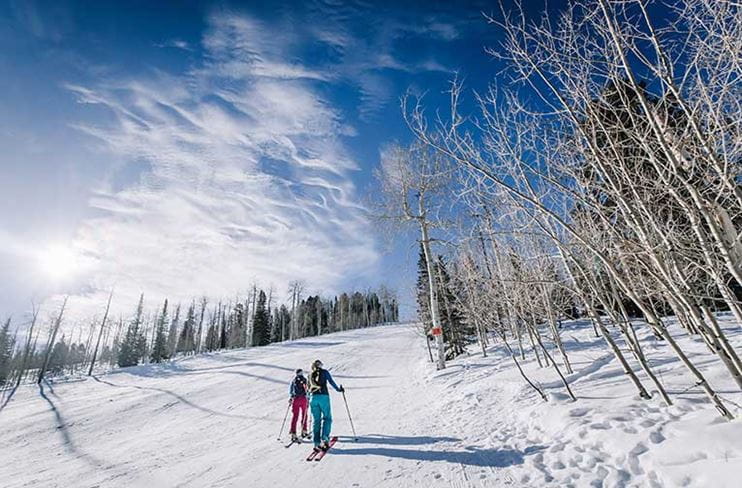And Still, She Blooms
Meet Aspen Snowmass athlete Sierra Schlag.

September 2022
In peak winter season, if all is going as planned, you're likely to spot Sierra Schlag carving quick, graceful turns on Ajax. Catching glimpses of her dark flyaways from under her helmet as she lays the inside edge of each of her skis into the snow, ducking into the trees, popping off a lip on Ruthie’s, or zipping through the moguls dotting Ridge of Bell beneath the Silver Queen gondola.
“When you go up to Aspen Mountain in the winter it’s social hour,” she says, smiling as she thinks about the season to come. “You run into everyone you know, and the community comes together. I look forward to that year after year.”
Hailing from New Jersey, Schlag’s skiing roots stretch from learning to turn in the Catskills of New York to competitive mogul skiing and freeskiing through her teens in Park City. Today, she calls the four mountains of Aspen Snowmass—and the surrounding area’s backcountry terrain—home.
“My dad, Steve, was from New Jersey but learned to ski on a field trip in high school and loved it,” she says. After college, Steve made his way out west to explore new terrain, with scrapbooked evidence of him ripping the slopes of Tahoe, exploring the I-70 corridor, and making solid ski memories in Aspen— which contributed to Sierra’s goal to make this valley her home.
“When I was growing up, our family identity was ‘five skiers,’” says Schlag, reminiscing about escaping New Jersey with her clan to ski Hunter Mountain. Her dad led the charge, making skiing an ingrained part of their existence—a priority for time well spent and a life well lived.
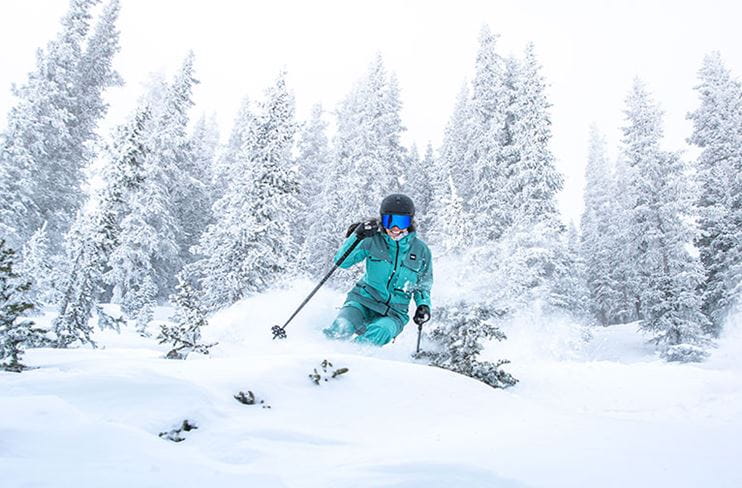
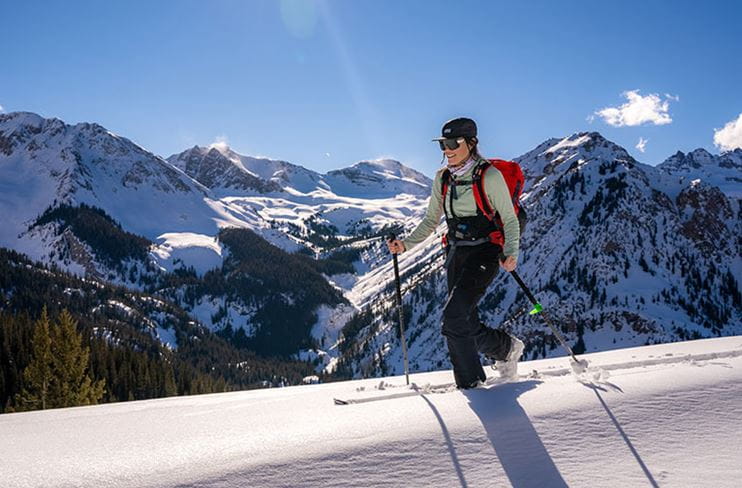
Outdoor enthusiasts and adventure lovers are often acutely aware that much of a life worth living is punctuated with the inherent risk of danger, which precipitates loss— avalanches, planes going down, or rivers and oceans swallowing humans whole. Steve was an adventurist type, the kind that liked to jump out of planes, mountain bike down steep terrain, and ski really fast. “He kind of always thought something was going to happen to him,” Sierra’s mom, Tomoko says.
Then there are the less black and white kind of losses—the tragedies not caused by a misstep in the balancing of risk and reward in the outdoors, but instead by a brutal moment in history. On September 11, 2001, when Sierra was just five years old, her father Steve died in the terrorist attack on the Twin Towers in New York City, where he worked.
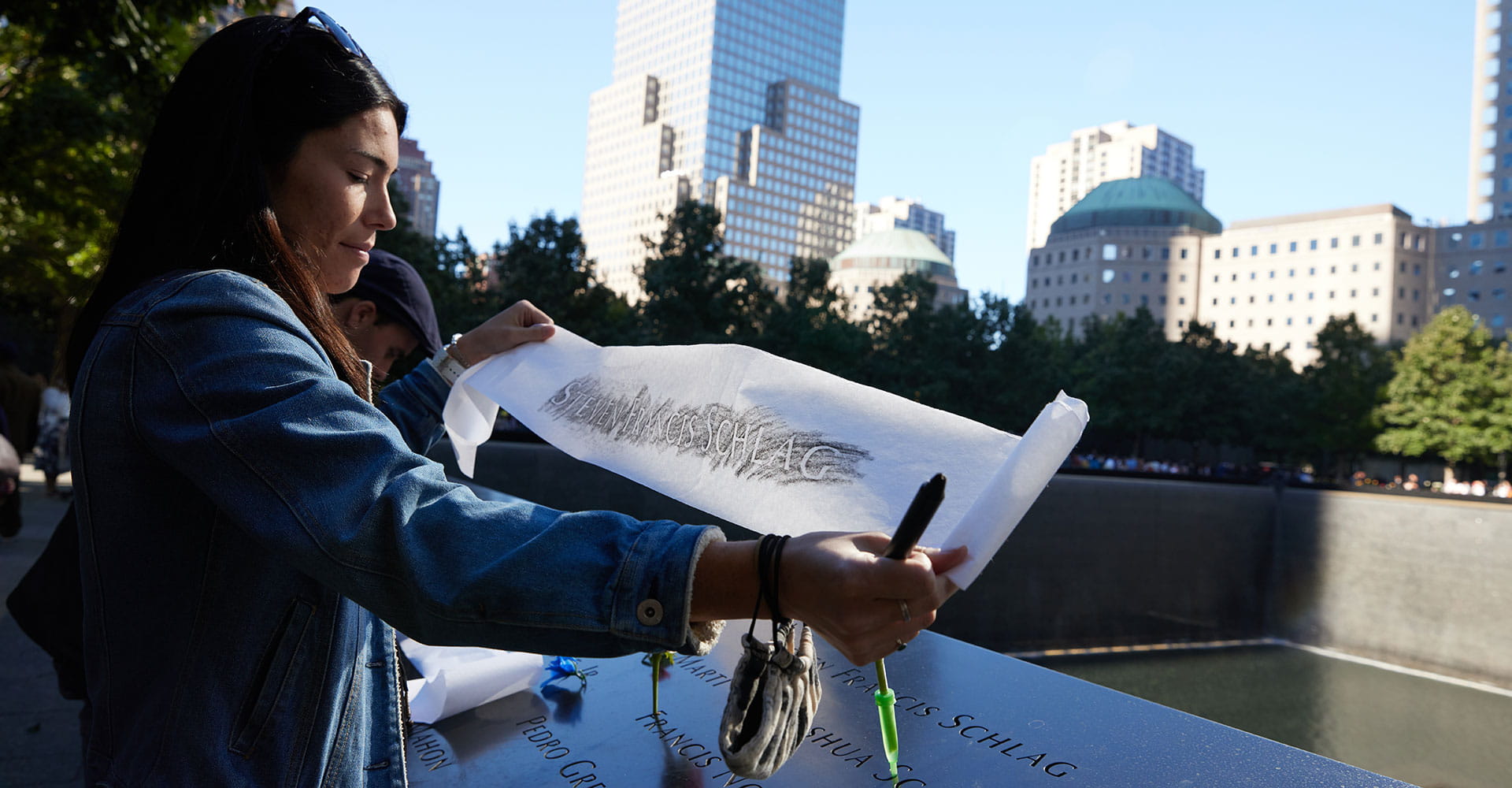
Sierra Schlag at the 9/11 Memorial
In her new, self-produced short film “Bloom,” Schlag finds herself coming to terms with navigating the collective trauma that the world watched on television, while also mourning the extremely personal loss of her father. “My dad’s death was a historical event that changed society and changed history,” says Schlag.
In the film, produced with help and support from sponsors and partners evo, Picture Organic Atomic, and Aspen Snowmass, Schlag explores “her grief and identity as a Japanese-American,” according to the film’s brief description. Turning these thoughts and feelings over, she recognizes that through skiing and time in the mountains, she can find solace and a much-needed connection with her dad.
“You know, I think about grief and I think about skiing, and I think about skiing as something of a vice,” says Garrett Schlag, a Colorado ski patroller and Sierra’s older sibling, in the film. “It’s something we did as a family, and it’s a piece of continuity that when everything else was going wrong, skiing was something we resorted to.”
After her dad’s death, the Schlags—Sierra, her mom, and her two older brothers—relocated to Park City, Utah, where her parents had discussed raising the family before Steve’s passing.
“I joined the Park City Freestyle Team and started competing in moguls when I was about nine,” Sierra remembers. “Both my brothers did it, so I just followed what they were doing.” At first, she liked it. And the repetition of pivoting down bumps made her a better skier. But then the monotony of the motions began to exhaust, and the high-stakes atmosphere of the competitions increasingly gave her anxiety.
This anxiety was compounded with the pressure to be perfect within academics—a phenomenon familiar to many Japanese-Americans—and processing the gravity of her father’s death as a young adult. In high school, Sierra entered a deep depression. But then she found her way to freeskiing.
“My last year of mogul skiing was my junior year of high school and I would ditch practice and go freeski with my friends and ski unique lines, not the same lines. What I love about big mountain skiing is everyone is choosing their own line—there’s creativity,” she reflects. “You have community, like a team, but we are all going our own route.”
These days, when September 11 rolls around each year, while the world bows at the significance of the day in synchronicity, Schlag finds time to be alone, preferably outside. “Celebrating anniversaries is important because you make time for that grief and that sadness. I wish it didn’t affect me as much as it still does, but it does."
“When I click into my skis, I know that’s what my dad taught me to do,” says Schlag. “And the fact that I feel most confident when I’m skiing, I think that’s what my dad would have wanted. Being able to find my power through the thing he taught me and showed me is so special.”
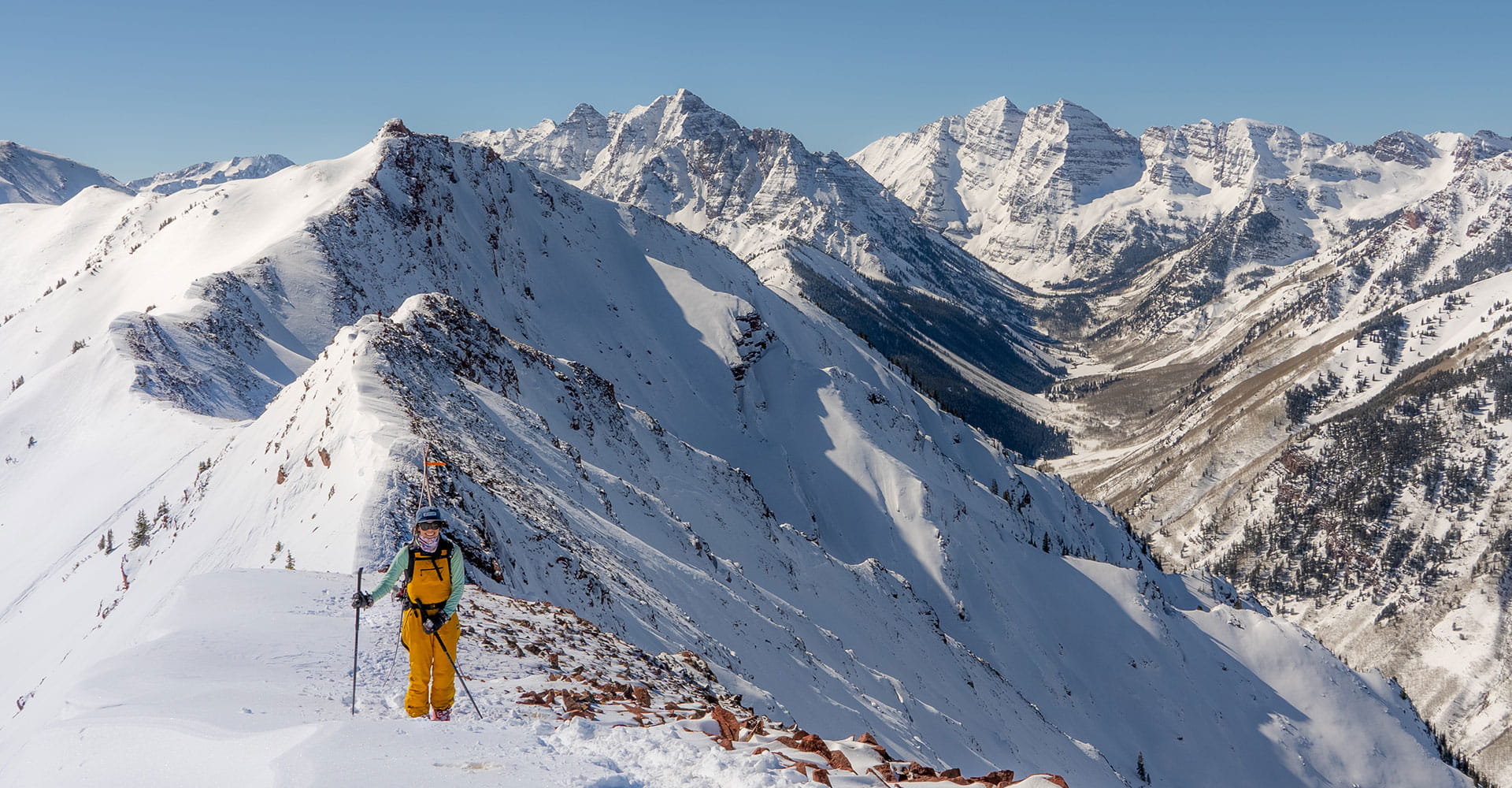
Sierra Schlag atop Highland Bowl
Today, Schlag is 27 and a sponsored athlete, representing evo, Picture, Aspen Snowmass, Atomic, Zipfit, and a handful of other outdoor brands. She’s fully recovered from an ACL injury that occurred March, 2021, and is hopeful about life in the Roaring Fork Valley. “When I moved up here, I told myself I want to be here for forever,” she says. “The access to world-class skiing and mountains, and the community is what I love most.”
“Bloom” was shot at Aspen Snowmass, as well as in the neighboring areas of Leadville and Marble, Colorado. Schlag says folks can check it out this fall, when Picture outerwear and evo will partner for a film tour—and at film festivals later in the season and early next year. Otherwise, Sierra can be found out on the slopes of Aspen Snowmass this winter, enjoying social hour.
Register here to see a screening of "Bloom" in Salt Lake City, along with other short films, at the Picture Family Film Fest on October 26.
